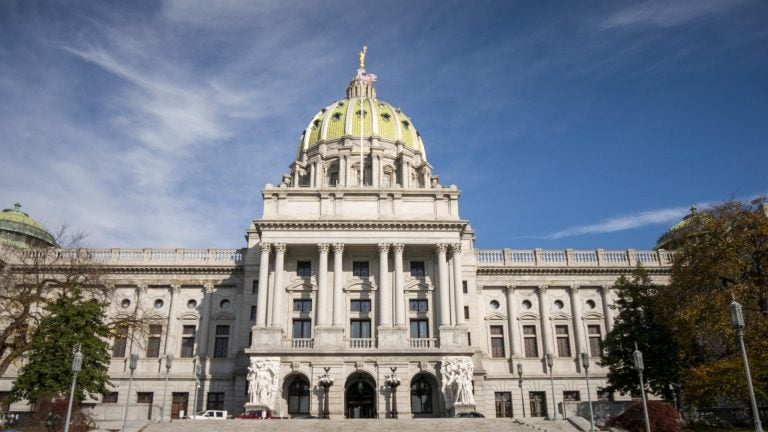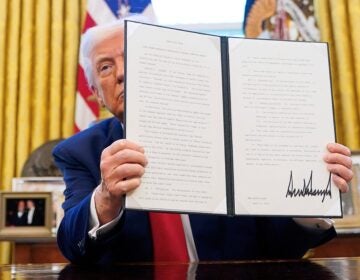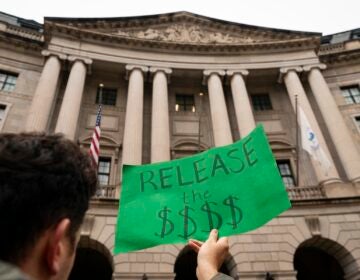Pennsylvania’s carbon-pricing plan at last regulatory hurdle
The plan to impose a price on carbon dioxide emissions from fossil fuel-fired power plants in Pennsylvania is going before the Independent Regulatory Review Commission.

The state Capitol building in Harrisburg. (Tom Downing/WITF)
The centerpiece of Gov. Tom Wolf’s plan to fight climate change will confront its last regulatory hurdle Wednesday, in a fight pitting Democrats, nuclear power plant owners and the renewable energy sector against Republicans, fossil fuel-plant owners, blue-collar labor unions and heavy industry.
The plan to impose a price on carbon dioxide emissions from fossil fuel-fired power plants in Pennsylvania is going before the Independent Regulatory Review Commission, a five-member panel made up of three Democratic appointees and two Republican appointees.
The vote is on whether to allow Pennsylvania to impose carbon-pricing as part of a multi-state consortium, the Regional Greenhouse Gas Initiative, which sets a price and declining limits on carbon dioxide emissions from power plants.
If Wolf is successful, Pennsylvania would become the first major fossil fuel state to adopt a carbon pricing policy. Wolf wants it to take effect next year, although a legal challenge is expected before that.
The heavily populated and fossil fuel-rich Pennsylvania has long been one of the nation’s biggest polluters and power producers. A chief argument against Wolf’s plan is that making fossil fuels more expensive would send power generation to neighboring states with no emissions caps.
The jury is out on whether it would significantly reduce greenhouse gas emissions. A key feature is that it would generate hundreds of millions of dollars for the state to flush into clean-energy subsidies and energy efficiency programs.
WHYY is your source for fact-based, in-depth journalism and information. As a nonprofit organization, we rely on financial support from readers like you. Please give today.





